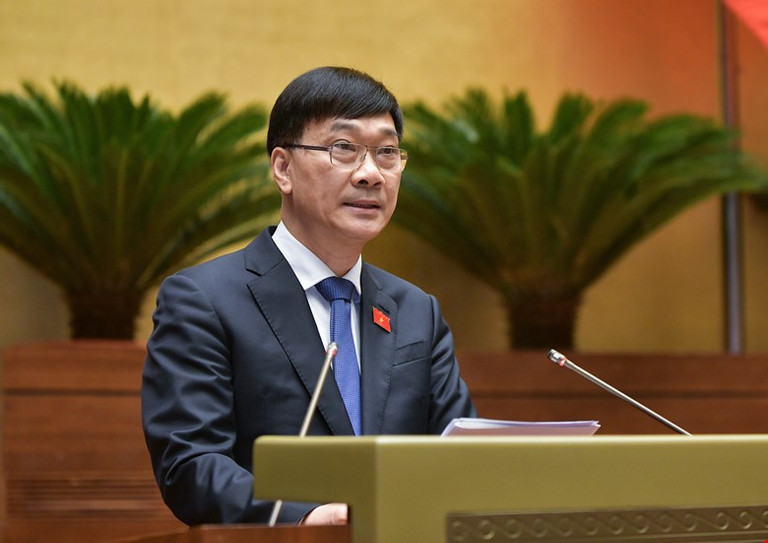
Chair of the National Assembly’s Economics Committee Vu Hong Thanh, on behalf of the National Assembly Standing Committee, has presented a report on collecting opinions, explaining and revising the draft of the amended Land Law.
Regarding land acquisition to implement development projects that don’t use state money, Thanh said the draft law has been amended with priority given to people who hold land use rights.
The amendment will promote land-use rights commercialization and encourage users with land-use rights to invest in projects of land use planning.
However, the National Assembly Standing Committee has requested the government to improve the effectiveness of law enforcement, especially the quality of development planning, which is a guiding tool for the State to serve socio-economic development plans.
The National Assembly Standing Committee has also asked the government to design regulations to impose higher tax rates on people using large land areas, or many houses and speculating in real estate, as required by Resolution 18-NQ/TW on regulating land rent differences caused by State planning.
The taxation will help discourage organizations and individuals from speculation which may hinder land accessibility of other investors who have the same or better capability to implement projects, since advantages now belong to people who are holding land use rights.
One of the important issues put into discussion is the separation of land use rights and assets on land when calculating taxes on real estate transfer.
Ha Sy Dong, a National Assembly deputy from Quang Tri, said that under the draft law, the taxable income for calculating conveyance duties on real estate transfer is the price at which real estate is sold each time. If the land is transferred, the taxable income is calculated based on the land price frames set by local authorities.
Dong noted that this is a ‘progressive decision’ as people won’t have reasons to declare false transfer prices to evade tax. The parties in transfer transactions will declare real transaction prices. The state will consider the prices shown in contracts to determine the land prices for the following years. If so, the land prices set by local authorities will be closer to real market prices.
Also according to Dong, Article 247 of the draft law mentions two types of transfer, including real estate transfer and land use right transfer. But in reality, it is common that transfer of land is associated with transfer of assets on land.
Quang Phong